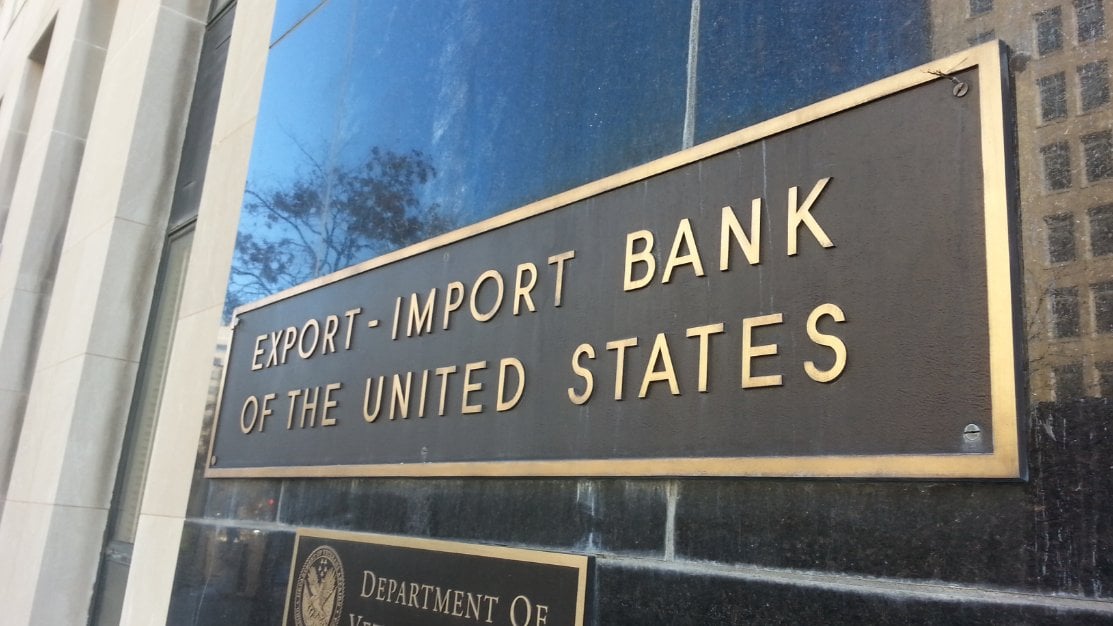Export-Import Bank Nothing but a Trough for Cronies

For a brief second, President Donald Trump brought a glimmer of hope to free-market advocates across the United States.
On the campaign trail in 2015, Trump had nothing but choice words for the Export-Import Bank. He accused the bank of “featherbedding” and mentioned that most of the Ex-Im Bank’s benefits went to “a few companies—and these are companies that can do very well without it.”
Sadly, these sentiments have not come to fruition, at least not yet. Fast forward to 2017: Donald Trump had a change of heart and advocated for the restoration of the Ex-Im Bank’s full lending authority. Score one for the swamp.
However, now the Ex-Im Bank finds itself in an vulnerable position. After the rejection of Trump’s original nominee to lead the bank, Scott Garrett, politicians on both sides of the aisle are scurrying to nominate more board members to fulfill the quorum required to carry out deals of more than $10 million.
Proponents insist that the Ex-Im Bank is crucial for maintaining a dominant American export economy. Putting aside the rhetoric, is the Ex-Im Bank as vital as the political class makes it out to be?
A Corporate-Welfare Piggy Bank
In truth, the Ex-Im Bank embodies some of the most egregious forms of corporate welfare at the federal level. Created in 1934, to help finance trade with the Soviet Union of all places, the Ex-Im Bank is the official export credit agency of the US government. Like any government bureaucracy, its staunchest proponents justify its existence under the most dubious of premises. They contend that the Ex-Im Bank provides critical export financing that, all things being equal, would not be available in the private sector. After peeling back the onion, one can see various holes in these claims. To start with, the Ex-Im Bank only backs a measly 2 percent of US exports per year. The rest of the non-rent-seeking business populace obtain their loans through private banks and other financial institutions without government aid. Derisively known as “Boeing’s Bank,” the Ex-Im Bank is notorious for doling out generous aid to large corporations like Boeing. That company alone enjoyed $66.7 billion in subsidized financing from 2007 to 2014. In stark contrast to the popular talking point that the Ex-Im Bank helps small business, Veronique de Rugy of the Mercatus Center documents that 10 major corporate entities—including Bechtel, Boeing, and Caterpillar—are the primary beneficiaries of the Ex-Im Bank’s largesse. When placed under further scrutiny, these claims about the Ex-Im Bank playing a pivotal role in developing American small businesses are embarrassingly out to lunch, considering that 99.9 percent of small businesses receive no benefits from the Ex-Im Bank. One thing is certain, well-connected businesses can count on the Ex-Im Bank to give them sweetheart deals when they need them most. No Moral Leg to Stand On
Living off of American taxpayer dollars, the Ex-Im Bank unjustifiably exposes taxpayers, borrowers, and consumers to risk. The Ex-Im Bank’s cronyism isn’t just confined to US companies. It partners up with state-owned enterprises like Pemex of Mexico—a paragon of waste and graft—and proceeds to give them preferential deals at the American taxpayer’s expense. Birds of a cronyist feather flock together. If its original connection to the Soviet Union wasn’t questionable enough, the Ex-Im Bank subsidizes foreign companies in countries known for human rights abuses, such as China and Saudi Arabia. To add insult to injury, in 2016 Boeing sold a fleet of aircraft to a recognized state sponsor of terrorism in Iran. American taxpayers should not have their hard-earned money used to facilitate business deals with countries that have diametrically opposed political values to those of the United States. President’s Trump flip-flop on the Ex-Im Bank was a major let-down, but he can still make things right by using his bully pulpit to bring accountability to the Ex-Im Bank and usher in its demise. If Trump wants to make America great again, he can start by closing the Ex-Im Bank. America’s success was built by free-market capitalism, not government privilege.








